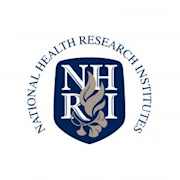- Science News
- Health
- Should we treat aging as a disease?
Should we treat aging as a disease?

Academic, pharmaceutical, healthcare policy and pension fund perspectives.
— By Elliott Williams
“The fundamental questions of whether aging can and should be classified as a disease are not new, but today they are more pressing than ever for many reasons,” says Dr Alex Zhavoronkov, CEO of Insilico Medicine and Chief Science Officer at the Biogerontology Research Foundation.
Gerontology, the study of old age, spans multiple academic fields from economics to social sciences. Biogerontology specifically focuses on those biological process that contribute to aging, as well as the ultimate effects of aging on our health. Insights from biogerontology studies will contribute to public and private medical research, influencing our societal values, and guide policy makers in their decisions.
“The main problems in biogerontology are similar to those in drug discovery for most human diseases — but with fewer resources, less visibility and less of a sense of urgency,” says Dr Alex Zhavoronkov.
To bring into focus aging as a disease, Dr Zhavoronkov is looking to the future, and the 2018 release of the WHO-curated ICD-11.
The ICD (International Classification of Diseases) is an extensive piece of work used at all levels of healthcare management: from physicians to patient organizations, from insurers to policy makers. Via the assignment of codes to disease, it helps countries to direct and reimburse research efforts.
“There is an urgent need to proactively develop actionable codes for age-related muscle wasting, many conditions related to cognitive decline, decline of the metabolic system, loss of regenerative capacity and even skin and hair pathologies.”
In preparation for the ICD-11, and to spark debate, Dr Zhavoronkov and his co-Topic Editors started a Frontiers Research Topic to produce a dedicated, and referenceable, collection of works which will present novel perspectives and reviews on aging as a disease.
We spoke with him to find out more about the topic and the specific challenges within his field.
What sparked the initial proposal of this project?
The fundamental questions of whether aging can and should be classified as a disease are not new, but today they are more pressing than ever for many reasons. Recent technological advances in many areas of technology allow for detailed analyses of the progression of aging and the development of epigenetic, transcriptomic, biochemical and imaging biomarkers.
Both animal and human data suggest that effective interventions can be developed to extend longevity and prevent the onset of various age-related diseases.
Another important factor contributing to urgency of the project is that the economies of some countries with a heavy burden of debt are slowing down partly due to the rising healthcare costs and lost productivity, which can be attributed to the increased morbidity of an aging population.
Finally, the 11th international classification of diseases, ICD-11, curated by the World Health Organization, is expected to be finalized in 2018; considering the fact that the previous version (ICD-10) was published in 1992, there will not be another chance to define actionable codes for aging and age-related conditions for many years.
Pharmaceutical and insurance companies need these codes to put forward business cases to develop and reimburse new treatments, and doctors need these codes for clinical applications.
Since there are many stakeholders involved in disease classification, we decided to make the initial proposal for this Research Topic as broad as possible. In addition to scientists and pharmaceutical companies, we also call for non-profit think tanks, insurance companies and pension funds to contribute their research and perspectives to the topic.
What are the major challenges currently faced in the field of Gerontology?
The main problems in biogerontology are similar to those in drug discovery for most human diseases but with fewer resources and less visibility. In addition, most industry stakeholders begin seeking interventions for age-related diseases when symptoms are already present.
There is a clear business case to be made to healthcare providers, pharmaceutical and insurance companies and, most importantly, policy makers, funding bodies and scientists. Research into aging processes and related diseases to identify specific and actionable markers and targets is scarce.
Another major impediment is lack of good biological models to study interventions in humans. While there are many biological processes shared with yeast, worms, flies and rodents, drugs discovered for these animal models tend to not translate effectively into humans, with few drugs that were tested in animals models successfully passing clinical trials.
As such better models of aging need to be developed that are as close to humans as possible. There is much promise in both organ- and body-on-a-chip models and sophisticated in silico modeling. The current models need to be reassessed in terms of relevance to aging in humans and with the goal of developing and testing therapeutic interventions. Classifying aging and age-related conditions as diseases will help focus the research community toward applied clinical solutions.
Another obstacle is the absence of a centralized authority on translational biogerontology. This would be useful to focus research on developing effective interventions into human aging as well as coordinating an international program to produce measurable results in the field.
How do you hope your Frontiers Research Topic will address such challenges?
This Research Topic is an attempt to bring together both academic and industry stakeholders to explore the biomedical as well as economic aspects of classifying aging as a disease. We hope that the Research Topic will increase the visibility and importance of aging research, and help private and public organizations build cases for developing interventions that increase quality of life for those with aging-associated conditions. We also hope that this Research Topic will help provide and strengthen the arguments for including a broad range of age-related conditions into the ICD-11 with associated actionable classification codes.
Were there any research niches in the field you would have liked to include but couldn’t?
We would like to include economics of aging and longevity into the Research Topic. It would make sense to publish several models of economic growth focused on productive longevity of the population. However, few journals and scientists focus on this niche.
In brief, could you provide some background on the topic editors?
We are actively engaged in many areas of aging research including biomarker development, drug discovery in aging and age-related diseases, and health economics. I have published multiple research papers and a book describing the productive longevity model of economic growth and the possible impact of biomedical advances on the global economy.
Classifying aging, or even some of the conditions related to aging, with actionable disease codes that can be diagnosed and addressed with therapeutic interventions will significantly accelerate research, product development and mass market propagation of preventative and regenerative programs.
Read the Frontiers Research Topic: Should we Treat Aging as a Disease? Academic, pharmaceutical, healthcare policy and pension fund perspectives








